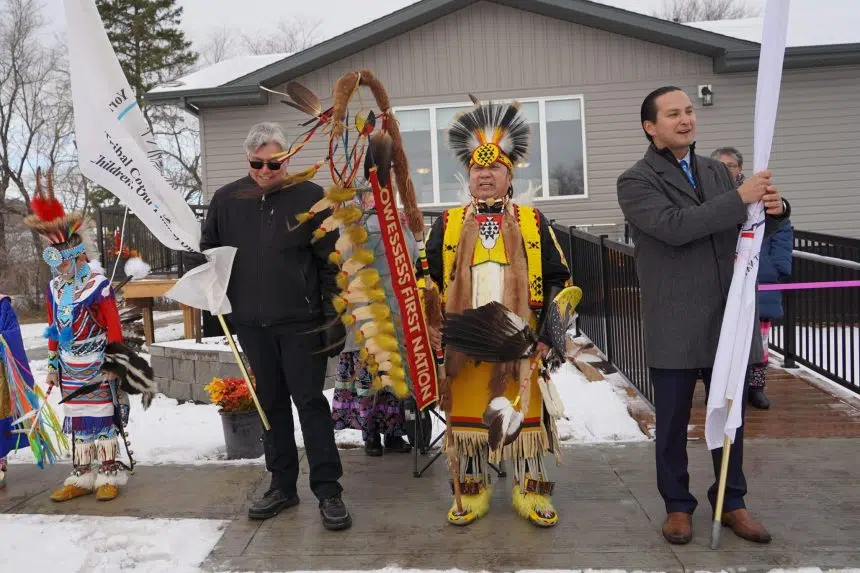The Cowessess First Nation can now bring its girls home.
The new transition residence, Sacred Wolf Lodge, opened Friday and will allow girls in government care across the country to return and grow up on the First Nation.
The home has 10 beds for girls between the ages of 14 and 17, plus another two bedrooms for the staff who will live with the girls.
“We are focusing on the short-term stay transition with the goal of getting into permanent (residence) for the ones that want to live on the First Nation and prepare to be an adult,” Chief Cadmus Delorme said Friday.
The girls will be selected with help from agencies including Yorkton Child Family Services, the Ministry of Social Services and agencies in neighbouring provinces.
Before the girls move in starting in January, training is underway for staff. There will be one supervisor, one team leader and one grandmother working directly with the girls.
Other workers include a cultural service provider, program assistant, youth and family co-ordinator, house mother and youth mentors.
Delorme explained that, due to the history of residential schools and Indigenous children growing up away from family in foster care, the goal is to make staff feel more like family.
Instead of being referred to as social workers or intake workers, they will use words like auntie, mom, grandmother or kokum (which means grandmother).
“A lot of them grow up not really having a mom or a grandma. To have this home, we are going to re-establish their kinship and blood-wise, that may not be their mom or grandma but in life, they will have a mom or a grandma,” said Delorme.
Cowessess values and traditions will be ingrained in the new home as the workers revive the role grandmothers played in the community.
The home will feature a study area and a living room set up to accommodate traditional smudging. Grandmothers will also take part in coming-of-age ceremonies to teach that women and girls are respected and celebrated.
“There is not a culture or a background where parents and grandparents (don’t) play such a key part. Indigenous people, it’s no different. Today, Cowessess is creating healing mechanisms so we can be a part of the economy, so we can be a part of the growth, so we can be a part of what treaty was meant to be,” Delorme said.
“They will also start to meet other youth that they relate to. It could be cousins that they’ve never met before, family members, friends. They’ll always know growing up, if they ever move out after they age out, that they did grow up at home, whereas maybe some of them were never able to do in the past.”
The chief explained the new home will not only provide healing to the girls, but to the older generation as well. He expects Sacred Wolf Lodge to lift the hearts of elders who never had this option growing up in the age of residential schools.
Delorme said the transition home is just the beginning of the healing process. He said the Cowessess First Nation is trying to decolonize through its own laws and is working to create its own child and family services.
It has also started the conversation with other partners to build a similar transition home in Regina and maybe Saskatoon.
“Cowessess is working on other means to try and create more healing ways so we can create more dreamers out there. If they want to be doctors, lawyers, teachers (or) social workers, we’re just trying to make sure that we can create a generation of believers,” Delorme said.











